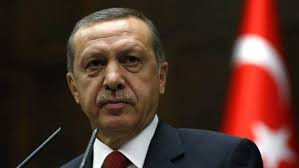Experts are concerned the government, headed by President Erdogan Recep Tayyip Erdogan, has found itself in a toxic mix of being unable to focus on much-needed economic reforms, renewed fighting with Kurdish militias, the rising threat of Islamic State forces, and a growing refugee crisis — all with the Syrian war on its doorstep.
CNBC takes a closer look at the biggest of Turkey’s problems:
Too many enemies: The terrorist threat
Ankara is fighting a growing number of enemies within and outside its borders.
Turkey, which is believed to have the world’s 10th largest army, is not only taking aim against the terrorist group known as Islamic State (IS) along with coalition forces in Syria, but it is now shelling Kurdish separatists from the People’s Protection Units (YPG) in the north of Syria and the Kurdistan Workers’ Party (PKK) in Iraq.
A collapsed ceasefire with the PKK back after two years of relative peace in July has sparked a flare-up of violence, attacks and government crackdowns. The PKK, which have been fighting for regional independence, are recognized as a terrorist organization by Turkey and western allies and have been blamed for numerous attacks.
However, Ankara blamed Wednesday’s deadly bombing on the YPG, a Syrian Kurdish militia group, that Turkey is urging allies to similarly recognize as a terrorist organization. It’s proven difficult, though, given the YPG is helping the U.S. fight IS in Syria.
There is speculation that the country’s latest call for boots on the ground to end the war in Syria amid a precarious ceasefire may be partly driven by an interest in eliminating an alleged Kurdish threat.
There is speculation that the country’s latest call for boots on the ground to end the war in Syria amid a precarious ceasefire may be partly driven by an interest in eliminating an alleged Kurdish threat.
Meanwhile, IS has been blamed for attacks that gained some of the greatest international attention in recent months, including October’s Ankara suicide bombing which left over 100 dead, and January’s attack which left 10 foreign tourists killed in Istanbul.
Its efforts to stamp out Kurdish threats may help further isolate the country among its neighbors, but “Turkey couldn’t care less,” Wolfango Piccoli, a co-president of political risk analysis firm Teneo intelligence told CNBC by phone on Thursday.
The Turkish government’s priorities lie with subduing Kurdish militias, making sure President Assad’s regime is out of office, and preventing the development of autonomous Kurdish areas in Northern Syria, he said.
In other words, concerns about becoming an outcast, are “just not part of equation,” Piccoli said.
The feud with Russia
There is a battle of egos taking place between Russia’s President Putin and Erdogan after Ankara failed to apologize for downing a Russian fighter jet that allegedly ignored warning calls after entering Turkish airspace back in November.
It exacerbated mild tensions between the former allies after Russia officially intervened in the Syrian war in September with an air campaign on the side of the Assad regime.
Russia has since restricted tourism to Turkey, clamped down on its former trade partner’s agricultural imports and set stringent visa limits that have notably impacted the Turkish economy.
Relations between Putin and Erdogan don’t look ready to thaw, Anthony Skinner, a director at Verisk Maplecroft told CNBC on Tuesday.
“Russia is enjoying squeezing Turkey through Syria,” he said.
Economic repercussions
Perhaps most worrying for investors are the repercussions for Turkey’s economy from all these tensions.
While Ankara has played down the effect of Russian sanctions, the European Bank for Reconstruction and Development suggested the row could shave 0.4 percent off Turkish economic growth rates.
That’s not to mention the costs of a migrants crisis that’s seen the country play host to over 1.8 million people fleeing violence in neighbouring states as of December 2015.
The government’s growth forecasts have already been slashed for both 2015 and 2016, down one percent each to 3 and 4 percent respectively.
And analysts warn the trajectory isn’t sustainable, as there are potentially bigger problems to solve.
“As of now, the economic damage created by a pull-back of tourists.. the complications in terms of trade with Russia, are no doubt meaningful, but they can still can absorb, while oil is cheap.”
“But most importantly all of this stuff is distracting them from making meaningful economic efforts — the PKK, Syria, the refugee crisis, Russia — leaves them no interest, no time and no bandwidth to push forward with reforms to help economy to restart the growth engine,” Piccoli said.
“All these challenges are growing.”
CNBC


Leave a Reply
You must be logged in to post a comment.